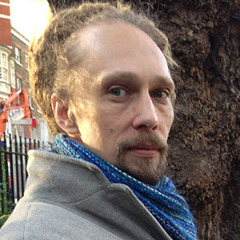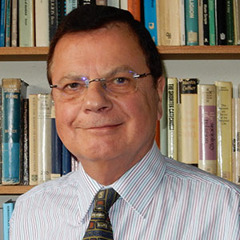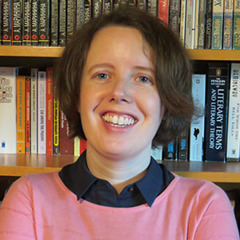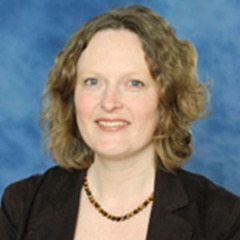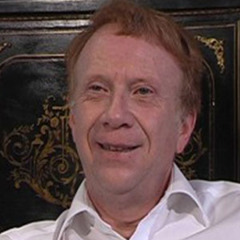JWScholars on JW.org
https://www.jw.org/en/news/releases/by-region/russia/threat-to-ban-new-world-translation-interviews/
NOVEMBER 18, 2016
RUSSIA
PART 2 Supplement
Exclusive Interviews—Experts Decry Russia’s Threat to Ban the New World Translation of the Holy Scriptures
This is Part 2 of a three-part series.
On the heels of President Vladimir Putin’s recent amendment explicitly prohibiting bans of certain sacred texts, Russian authorities are attempting to ban the New World Translation of the Holy Scriptures published by Jehovah’s Witnesses, labeling it as “extremist.” While waiting for the case to resume, pending a court-appointed analysis of the New World Translation by the Center for Sociocultural Expert Studies in Moscow, exclusive interviews were conducted with several noted scholars of religion, politics, and sociology, as well as experts in Soviet and post-Soviet studies.
How is the New World Translation of the Holy Scriptures viewed among Bible scholars and what reputation do Jehovah’s Witnesses have as translators?
“Like all translations that reflect the sincere attempt to grasp and express the meaning of the original as close as possible, so does the New World Translation. All translations that are published by religious organizations reflect certain theological traditions, and the New World Translation is no exception—for example using “Jehovah” throughout—but this does not affect the credibility of the translation. In 2014, the Estonian-language New World Translation was published. It received a lot of attention from other Estonian Bible translators, representing both a variety of Christian denominations as well as academia, and was regarded as being clear and refreshing. Eventually, the Estonian-language New World Translation was awarded third prize in a popular vote for the 2014 Language Deed of the Year Award presented by the Ministry of Research and Education.”
—Dr. Ringo Ringvee, advisor, Religious Affairs, Estonian Interior Ministry; professor extraordinarius of comparative religion, Theological Institute of the Estonian Evangelical Lutheran Church, Estonia
[...]
“It is fair to say that the New World Translation has been criticized by mainstream scholars. Such criticisms, however, are on a limited number of doctrinal matters that turn on the translation of certain key texts. Jehovah’s Witnesses have added nothing to the Bible that provides any momentum for extremism or violent activity. On the contrary, the Witnesses have always used the Bible to support peace and to oppose violence.”
—Dr. George D. Chryssides, former head of religious studies, University of Wolverhampton; honorary research fellow in contemporary religion at York St. John University and University of Birmingham, United Kingdom
What is your opinion of Russian authorities seeking to ban a Bible translated by Jehovah’s Witnesses based on claims that it is “extremist”?
[...]
-
“Any legal prohibition on a Bible translation is a clear affront to religious toleration, particularly since it singles out a specific religious minority and targets their interpretation of Scripture. It should not be the business of government to engage in theological debates over the proper translation of the Bible.”
-
— Dr. Emily B. Baran, assistant professor of Russian and Eastern European history, Middle Tennessee State University, United States
- [...]
-
“The amendments to the extremism law would, on the surface, appear to protect the Christian Bible from censorship or banning. It would seem that it is not the sacred text that is protected, however, but particular versions of it. The New World Translation may have been seized not because of its content but because of its origins, namely with Jehovah’s Witnesses. The Witnesses are regarded as a challenge to traditional Russian practices in a range of ways, from their day-to-day living to their congregational arrangements and from their spiritual beliefs to their version of the Bible. They are, moreover, regarded as an American import. In sum, they are viewed as outsiders without a legitimate presence in Russia.”
-
—Dr. Zoe Knox, associate professor of modern Russian history, University of Leicester, United Kingdom
- [...]
-
“The Bible translated by Jehovah’s Witnesses is not a book of political combat against Russian society. It is one translation among others. I don’t see how the Bible of Jehovah’s Witnesses is ‘extremist.’ If it were, it would be banned in other democratic countries that are suspicious of political extremism. Yet, it is not banned in democratic countries.”
-
—Dr. Régis Dericquebourg, sociologist, associate professor of new religious movements, Antwerp FVG, Belgium
 SOCIOLOGICAL FOCUS
Research of religious sociology
& Secularity
SOCIOLOGICAL FOCUS
Research of religious sociology
& Secularity
